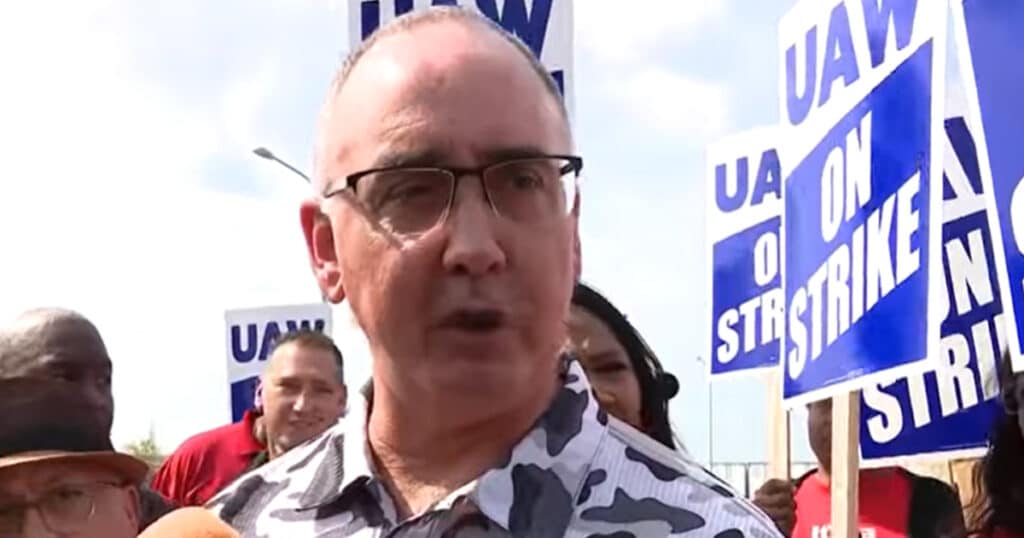
UAW strike against Stellantis, General Motors expands to 38 locations
The United Auto Workers on Friday at noon expanded its strike against the Big Three automakers to 38 locations at General Motors and Stellantis.
After failing to achieve significant progress at the bargaining table, UAW President Shawn Fain called on more workers to strike nationwide.
“As expected, we’re planning to stand up strike in response to the lack of progress in bargaining with GM and Stellantis,” Fain said in a livestream video. “We will shut down parts distribution until those two companies come to their senses.”
The 38 new parts and distribution facilities covering 20 states include Michigan, Ohio, Wisconsin, Minnesota, Colorado, Illinois, Nevada, Oregon, Georgia, Virginia, Florida, New York, Massachusetts, California, Kentucky, Texas, West Virginia, Mississippi, North Carolina, Tennessee and Pennsylvania.
It adds 5,600 workers to the original 12,700 that walked out earlier this week.
Friday marks Day 7 of the UAW strike, which includes 1,400 members striking Blue Cross Blue Shield of Michigan seeking to eliminate pay tiers.
The UAW initially sought wage increases of as much as 46% over four years, cost-of-living adjustments, pensions and retiree health care for all workers, and a 32-hour work week paid as 40 hours.
The UAW spared Ford from more strikes, citing increased progress in bargaining, such as reinstating the cost of living adjustments suspended in 2009, the immediate conversion of all temporary employees with at least 90 days of employment upon ratification, and an enhanced profit-sharing formula.
Fain said the UAW is focused on moving companies at the bargaining table.
“That means maintaining our flexibility and our leverage to escalate as we need to,” Fain said. “We can and will go all out if our national leadership decides the companies aren’t willing to move,” Fain said.
The UAW started the strike targeting facilities – one each in Michigan, Ohio and Missouri – totaling 12,700 workers across all original equipment manufacturers instead of stopping work for all 146,000 UAW workers under the Big Three, which would deplete its roughly $825 million strike fund.
Fitch Ratings anticipates the UAW strike will have minimal near-term credit implications on U.S. states affected by the strike. Fitch said the affected states and automakers have enough cash to withstand a labor stoppage between two and three months.
The U.S. states with the most striking workers and facilities are Illinois, Indiana, Kansas, Kentucky, Michigan, Missouri, New York, Ohio, Tennessee and Texas.
A University of Michigan Research Seminar in Quantitative Economics forecast estimated that Michigan could absorb roughly $180 million of tax revenue losses resulting from a 10-week strike involving all UAW members across OEM without credit deterioration.



